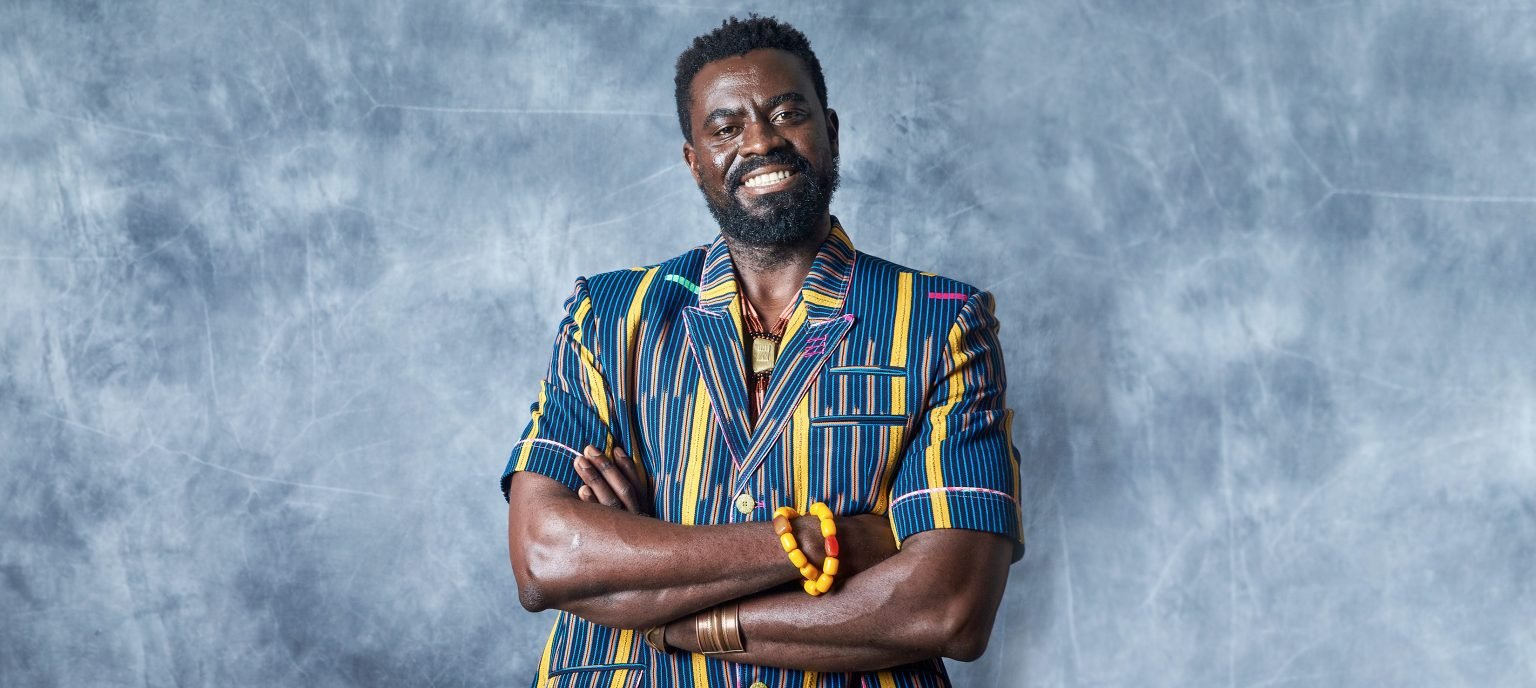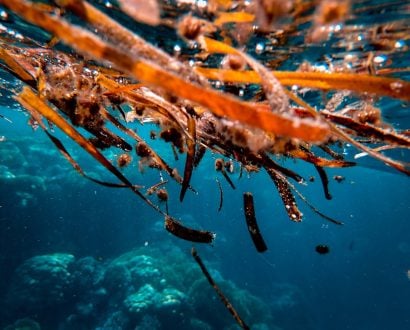Growing up in a remote village in West Africa with his 41 siblings, Olowo-n’djo Tchala was born into a community where everyone from his mother to his father and his father’s four wives were responsible for contributing to their clan’s survival – an ethos that’s not dissimilar to the fundamentals of his global clean beauty business Alaffia.
“Even sharing the little food we had with other siblings and the broader community of strangers passing through had an impact on me,” Olowo-n’djo tells The CEO Magazine. “There was a sense of community because you’ve got to survive together. If one goes down, everybody goes down.”
Inspired by his now wife Prairie Rose, who was a Peace Court volunteer working in his village in Kaboli, Togo, in 1996 when they met, Olowo-n’djo followed his heart to America to create a business unlike any other.
“Love makes a man do all kinds of things,” he laughs. “Until I met Prairie, my understanding of travel was maybe 80 kilometres. My world was quite small and she had already been to Australia, Germany and, of course, America.
“I was fascinated by knowledge – I wanted to understand the world.”
Embracing the true essence of community while connecting his home nation with the Western world, Alaffia was born to redefine the beauty industry and also forge a path towards equality and empowerment through using fair trade Indigenous resources.
Founded in 2003, the social enterprise produces natural products that encompass equality and empowerment through using centuries of experience and wisdom from the women in regional villages.
“Early on I learned how to survive, how to be competitive – extremely competitive … the marketplace looks like a war zone to me because of how I was brought up.” – Olowo-n’djo Tchala
West African women are tasked with handcrafting Alaffia’s products including unrefined shea butter and African black soap using traditional methods. These are then exported to Washington, US, where the company employs more than 154 people responsible for packaging the products at the factory, thus creating a framework of global jobs.
“If you go to the main centre – Alaffia Village – and you speak to the women, they will tell you that being part of Alaffia and being able to create products for the global market gives them a sense of pride,” Olowo-n’djo says. “What we do is build the strength to withstand and mitigate when we have a crisis.
Beauty with a higher meaning
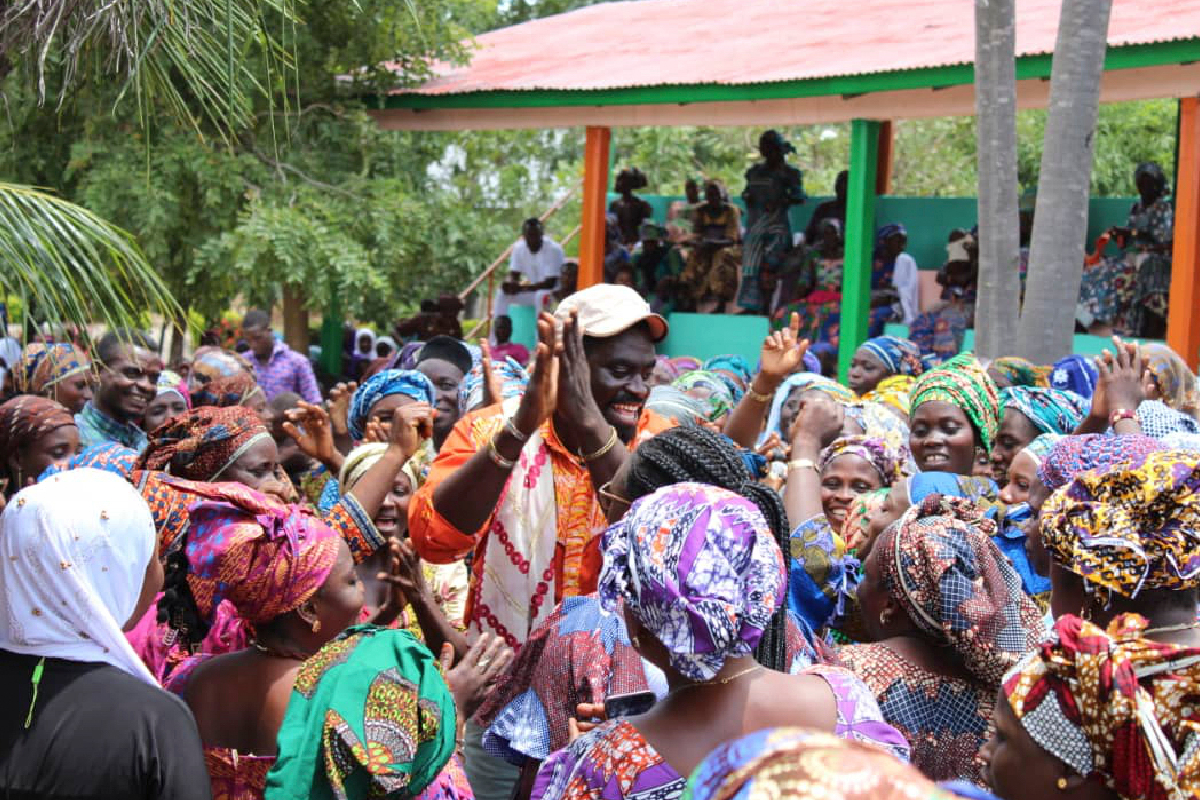
A woman in Sub-Saharan Africa has a one in 31 chance of dying during pregnancy or childbirth – a grave contrast to the one in 4,000 at risk in developed countries, according to UNICEF.
Through its unique 360 mission model, Alaffia has supported 5,597 births by reducing maternal deaths through prenatal funding and maternal care. The maternal healthcare program is also set to be introduced to the US later this year.
It doesn’t stop there. Alaffia has built 16 schools, planted trees, provided more than 10,000 bicycles to students and helped 37,521 recipients since its inception.
“Many organisations build a school – we don’t look at it that way,” the Founder explains. “We look at the economic aspect; how do we provide jobs for the woman that cannot read or write today? How do we ensure we’re supporting a school by providing transportation to the school, that we’re giving glasses to those who need eye help and even more importantly making sure the mothers have safe births? How do we prevent the female genital mutilation that’s practised in our community?
“To me, all of that combined strengthens the fabric of our community.”
Another 2,200 families will reap the benefits of financial independence when Alaffia’s new shea butter facility opens.
Empowering African women through health support and education while also providing jobs that pay fair work rates is the key to reducing poverty.
“Because of what the women are making, because of their artisanal skills, they can see a school that’s built by Alaffia,” he says. “They see the first sweat begins with them making shea butter or the African black soap first.
“They can see the correlation of investment in the community that begins with them, not the money simply coming from the West. And that is really important – it reverses the whole psychology on who is in charge.
“That’s why, to me, everything Alaffia does and what we’re trying to do is very intentional. It also has to create a way for hope.”
Being at the helm of a social enterprise can have its challenges. One of the biggest – deciding whether to save babies by providing them maternal care or spend those funds on marketing to spread the message.
“I have to make life and death decisions essentially,” Olowo-n’djo concedes. “I know what funds we put towards maternal care, how many babies will die and how many will stay alive. I also need people to understand what we’re trying to do. Those are big challenges.”
To top it off, the positive efforts the venture is making are met with discontent by the leadership figures of the regions.
“The communities are extremely supportive, but I don’t feel the leaders see what Alaffia’s doing as positive. It’s a challenge.”
Having started the brand at just 23 years of age with only about 17 women on board, the business now impacts around 250,000 individuals across West Africa.
“You get grey hairs at an early age, but that’s OK,” Olowo-n’djo laughs.
While the social enterprise is creating monumental change at local villages in West Africa, the popularity of its products is also soaring high.
“In the natural market in America, Alaffia is in the top five main personal care products,” he says.
Changing cultural and corporate norms
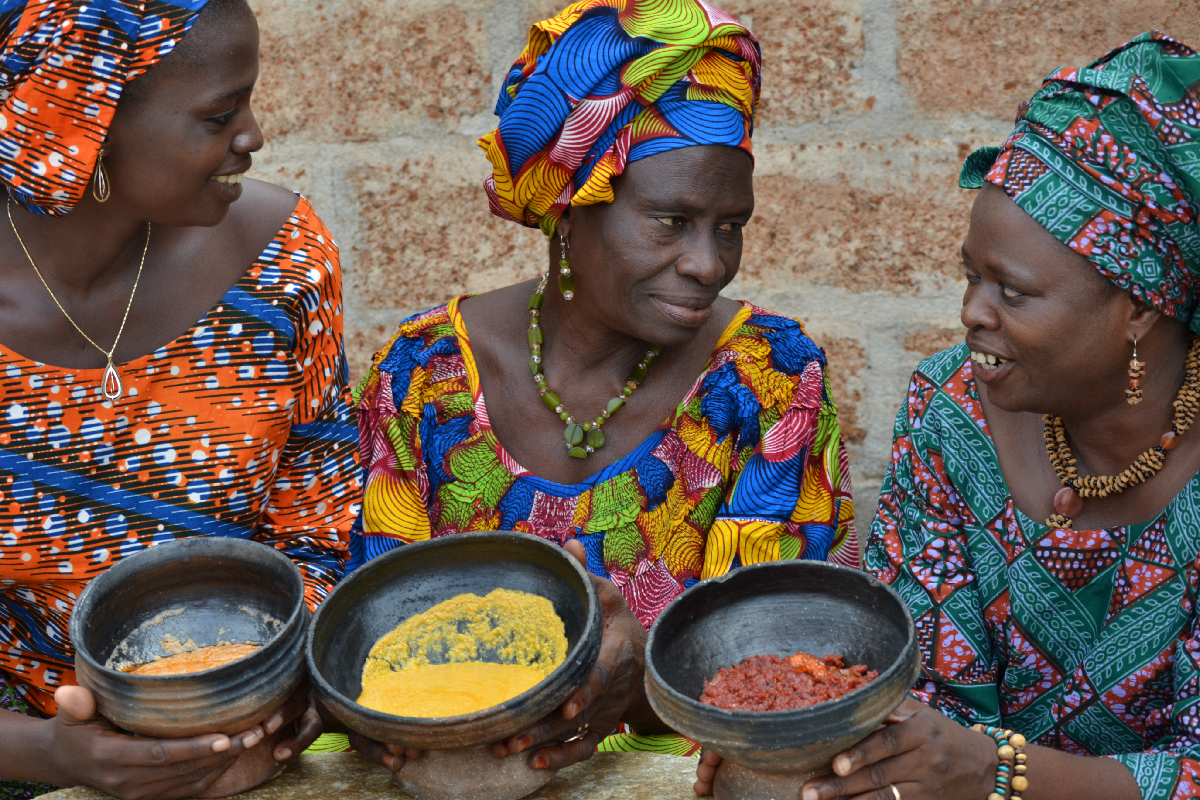
Often, powerful female-focused ventures are headed by women. Having a male founder pioneering the way with a natural skincare company, whose ambition is to empower women rocks the corporate norms.
Olowo-n’djo isn’t just spearheading a movement in West Africa, but across international borders and industries. The trailblazing leader was celebrated by the White House when he was invited to speak about at the Women’s Global Development and Prosperity Initiative in 2019.
From providing a virtuous loop of social and economic benefits to its refreshing transparency (it changes its packaging every year to depict where the money is going, down to the cent), Alaffia certainly lends itself to being a one-of-a-kind company. While it does make revenue, at its core, it demonstrates how businesses can be ethical and profitable.
“The world needs culture – it’s a sleeping giant and not enough of us are tapping into it.” – Olowo-n’djo Tchala
“Fundamentally the reason for our existence is our community projects, which aren’t conducted for marketing reasons. For other enterprises, their fundamental reason for existence is to make money and then market that they’re doing good,” the businessman explains. “We have moral reasons and have a way to prove to the world we can do something.”
The shining star who first ignited the concept is his late mother.
“The influence came from my mother as I was growing,” he candidly shares. “She helped me understand the challenges that faced an ordinary woman in a rural community.
“My mother was a servant and she instilled in me, as young boy, the sorrow or sadness, so I could understand that things are not quite right for women.”
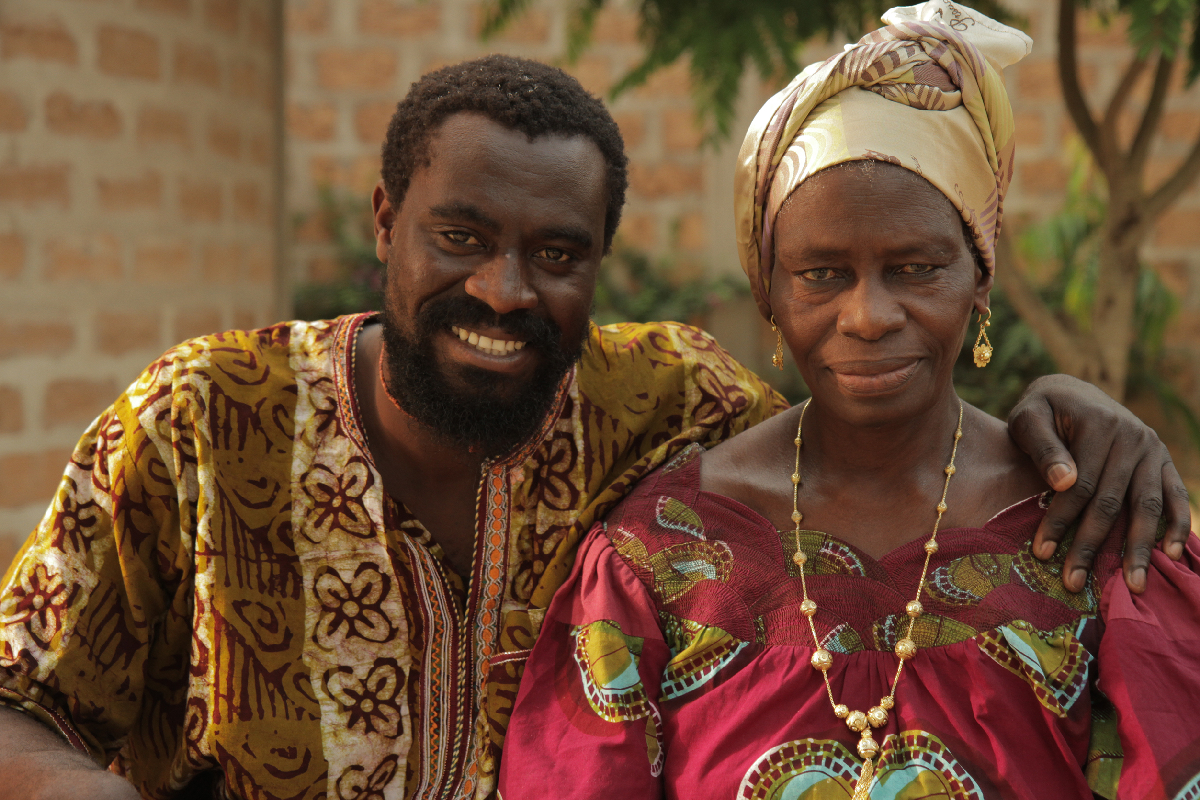
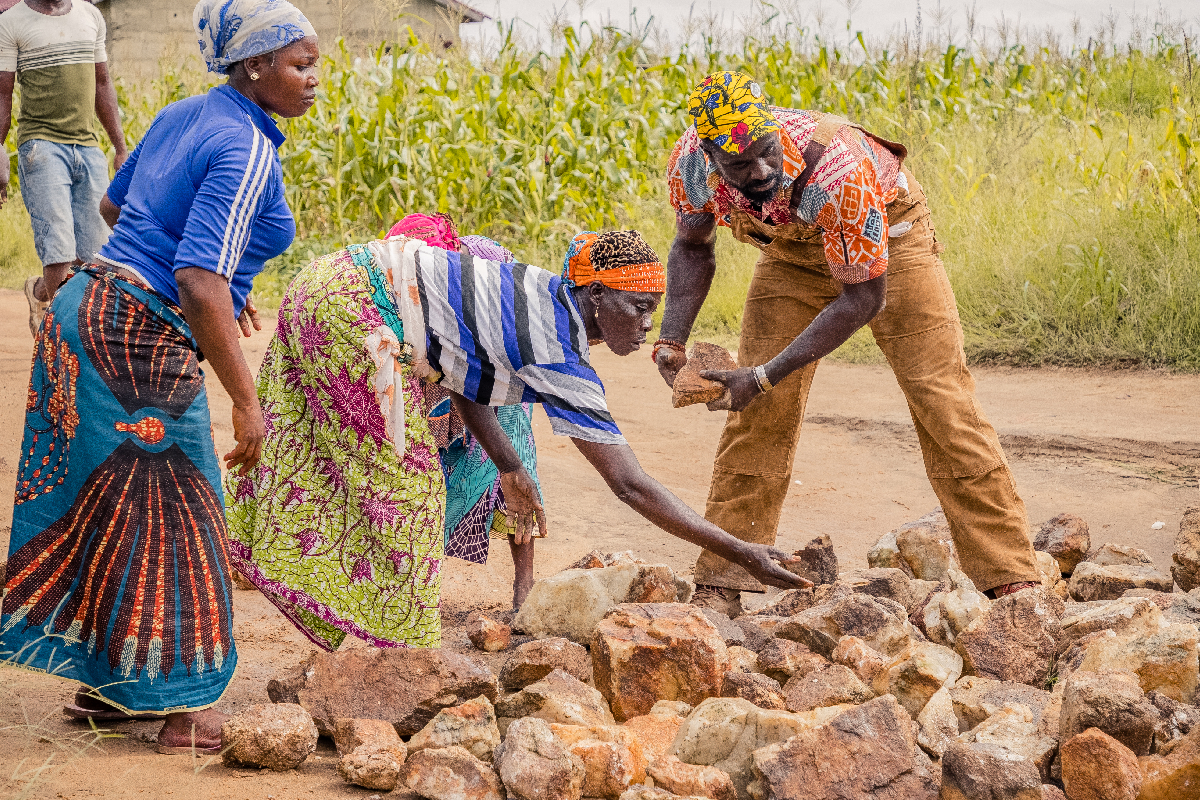
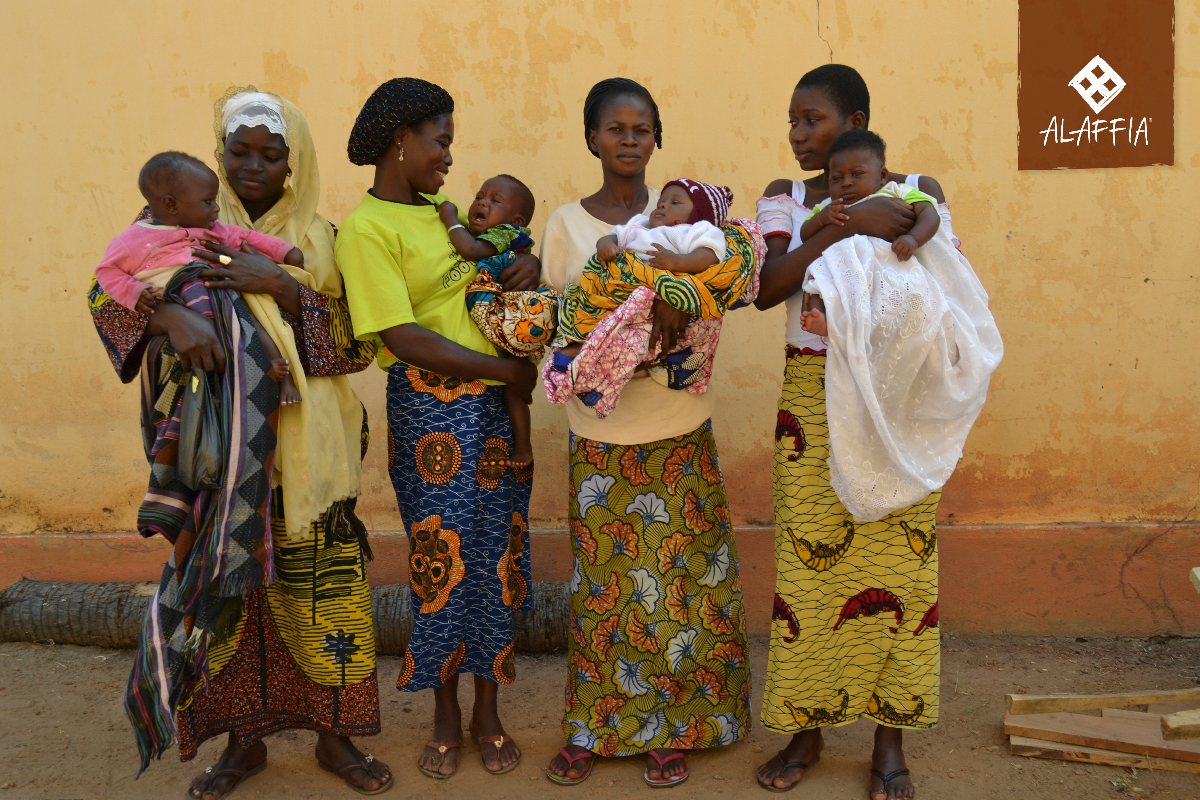
“When you’re in a village where I grew up in Togo, if you’re not going to go and find the water three or four kilometres away, you’re bringing the firewood, you’re feeding the baby, you’re that second or third wife – it just goes on and on.
“You’re trying to survive all the time you can.”
Education plays a huge role in breaking the cultural barriers. From building schools and donating desks to installing new roofs on schools, Alaffia plays a significant role in improving the future of young people.
And it’s one of the focus points Olowo-n’djo attributes to his mother.
“My mother had gone through female genital mutilation and she spoke to me about those things,” he recalls. “If it was something that was hidden from me, I wouldn’t necessarily know about it.
“Alaffia is fully engaged in trying to stop that practice.”
Olowo-n’djo’s sincere passion is evident but, despite any misfortunes he’s faced, his genuine nature and joyful attitude is something that shines through.
Mirroring Olowo-n’djo’s character, Alaffia means state of peace, health and wellbeing in the native tongue originating from central Togo, Benin and Nigeria. Complementing the brand virtues is the tradition Eban symbol, which is used to represent protection, security and love – all heartwarming qualities instilled in him from a young age.
Not only is Olowo-n’djo making meaningful progress through his cultural roots – which is heightened by his four-year term as a member of the US Trade Advisory Committee on Africa – he believes it’s the way forward for the world.
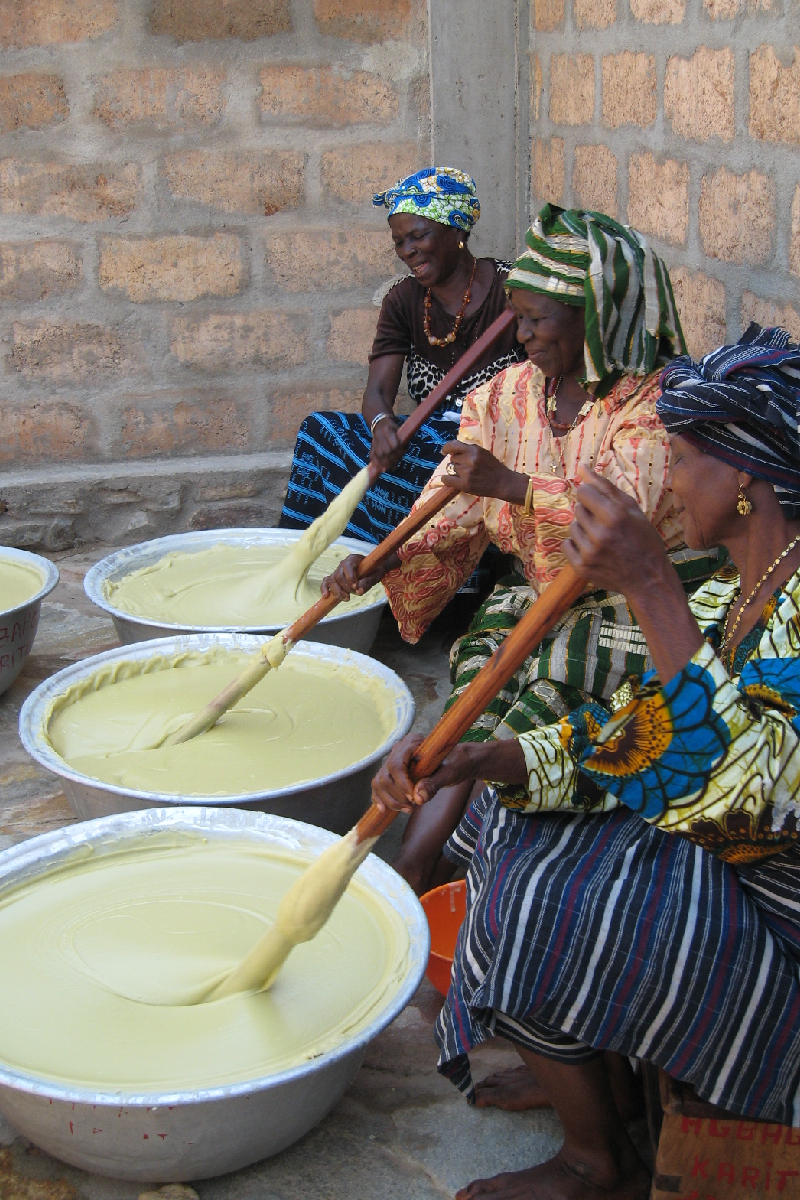
“If we’re using what is embedded in the culture to create economic empowerment, which we need to create some equality, then we’re establishing dignity, and dignity is important for the self-respect of one’s existence,” Olowo-n’djo explains. “When you feel relevant, it makes you feel you’re worth something. When a person doesn’t feel relevant, it’s as if you’re not a contributor to humanity.”
By creating jobs for the women in rural communities, the social enterprise has given them a sense of duty, while also allowing them to provide for their families, generating a loop of opportunities.
“Dignity and respect is critical for our future because it creates a sense of believing in ourselves, it creates hope, and hope is necessary for our future,” Olowo-n’djo explains. “We’re providing an alternative and having a product that works just as well or even better without all the harmful chemicals is truly a unique change.”
An exceptional quality of the venture’s success is its dedication to creating traditional products that are natural yet effective.
Through wielding the rich cultural instinct that spans centuries, the wisdom of tribal women is being shared further than ever with the power of a global market.
“Culture, it’s not only how you dress, how you look, what language you speak; it’s the knowledge that’s embedded in how you create different products,” Olowo-n’djo shares. “The world needs that – it’s a sleeping giant and not enough of us are tapping into it.”
And learning from ancestorial methods can be more accurate than modern research, he adds.
“If we know that some products work certain ways on some people for centuries, to me that’s centuries of experimenting, which is more effective than testing in laboratories for three months,” Olowo-n’djo explains. “When we look at what’s passed down generationally – a woman like my mother learned how to make shea butter or black soap, a whole list of various things.
“This is what we take notice of and use it to give back to the community, because when we use culture, then we’re establishing dignity.
“This is why betting with the knowledge that leaders send us will help with gender equality.
“We cannot talk about equality unless we can talk about economic empowerment and economic stability for both women and men.”
Creating a legacy at Alaffia
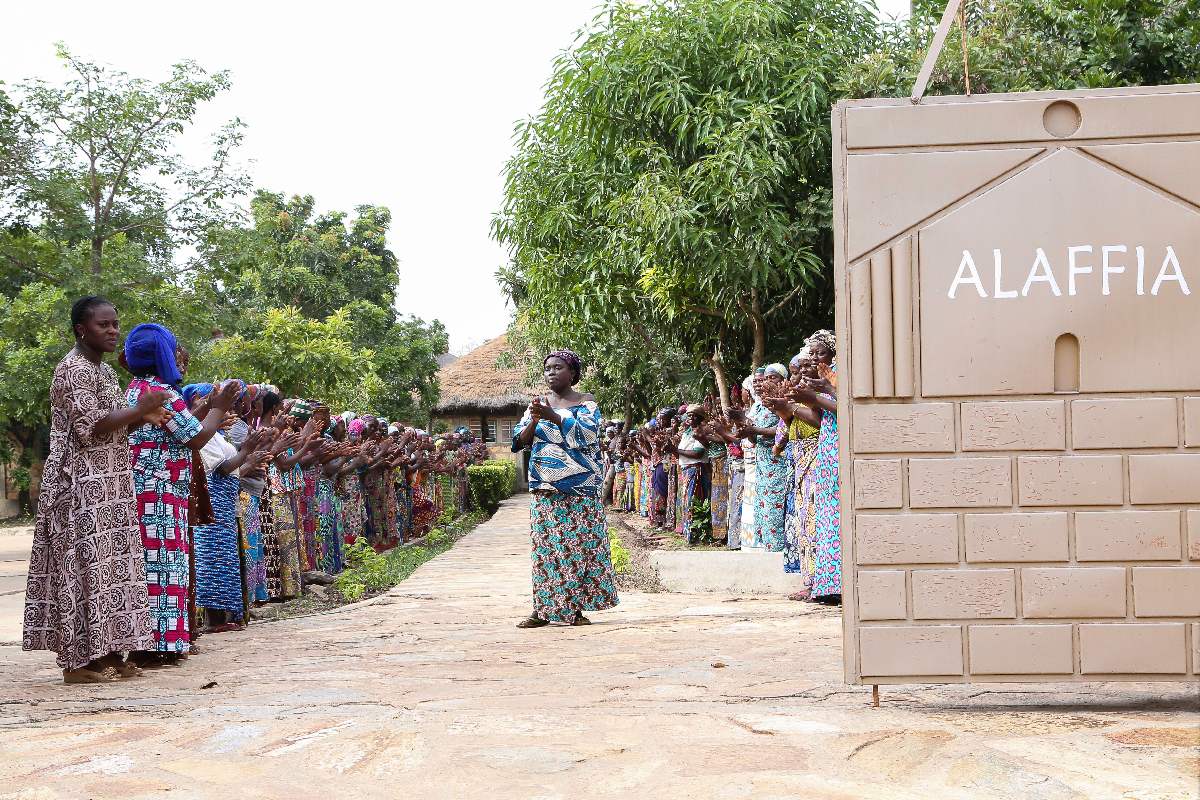
Strategically launching the headquarters 75 kilometres west of his home village in order to leverage diversity, Olowo-n’djo saw the need to impact the lives of more people.
Additionally, 70 per cent of Alaffia employees are representative of different ethnicities.
For the past two decades the change-maker has sacrificed seeing his own family in favour of his global mission. One of his biggest regrets has been not spending as much time with his family.
Despite leaving his home for the US – a move for which he faced scrutiny from his family – Olowo-n’djo cemented the gravitas of community from afar.
“My mother never set foot in the West,” he shares. “My mother was about the community. It was never about her.”
So much so, despite her son’s burgeoning success she refused any assistance – not even a house or use of one of the company’s many LandCruisers.
“For the first 10 years of Alaffia life, she was still living in this eight by 10 room. She was humble,” Olowo-n’djo recalls. “She didn’t want to live off me. Providing for the greater community beyond her ethnicity was more important and more of a service to humanity than building her a house or giving her a car.
“She showed me what hard work is and I learned from her.”
Experiencing a humble yet chaotic childhood, the Olowo-n’djo says the natural human instinct to survive has defined his agile business mind.
“Early on I learned how to survive, how to be competitive – extremely competitive,” he shares. “Even today when I look at a shelf or the marketplace, it looks like a war zone to me because of how I was brought up.
“I learned the complexities that, even today, help me in the marketplace.
“Yes, it was humble and peaceful, but it was war. Not only do I have to win, I have to lead it.”
Reflecting on the past 18 years where he’s improved more than a quarter of a million lives, all through a particular business model selling natural skincare products, Olowo-n’djo feels honoured to have made such waves in a systemic, centuries-long issue.
“If today I were to die, I would have no regret. I have served humanity in the most ethical way possible,” he reflects “It keeps my soul at peace.”

